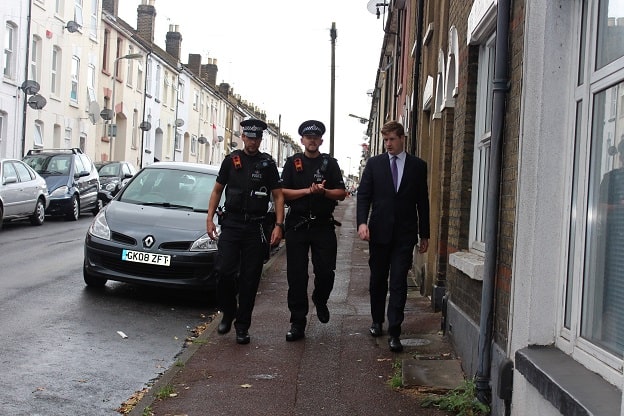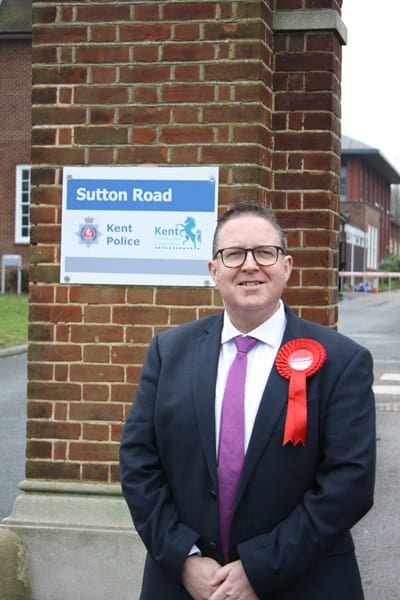
By Local Democracy Reporter Simon Finlay
Nominations have closed in the race to become the next Kent Police and Crime Commissioner (PCC) – with just three runners and riders.
Contesting the election will be the Conservatives, Labour and the Liberal Democrats.
A high deposit of £5,000 and the requirement of candidates to achieve 5% of the public vote to retain it seems to have put off more marginal contenders for the £89,000 a year role.
In the running on May 2 are Mathew Scott, the Conservative generally regarded to be the favourite to secure a third term in office, Lenny Rolles for Labour and the Liberal Democrat Graham Colley.
The PCC role oversees the work of Kent Police and its Chief Constable and holds them and their decisions to account.

Mr Rolles is a Kent resident who worked with legal and justice agencies while manager of public affairs at the animal welfare charity RSPCA.
He said, if elected, he would concentrate on shoplifting which has become a “major issue” in many parts of Kent.
One of his party’s headline policies at this year’s general election will be proposals to create a law aimed specifically at assaults on retail workers.
The sentencing tariffs would increase from six months to two years.

Rochester-based Mr Colley, a solicitor in the county, says his party’s policy is to restructure the role of the PCC and replace them with Police Boards made up of elected local councillors.
His website says: “It is a Liberal freedom to live without the threat of crime. However, as radicals, we must look to real solutions, not gratuitous fixes. Crime is a symptom of a problematic society and the individuals within it.
“Policing cannot change society, it can only seek to prevent its worst effects until society solves its own problems. However, until then, an effective police service is required to ensure the right to safety and security.”
The 5% vote share requirement to regain the deposit will have put many people off standing, say observers.
According to the Electoral Commission: “The deposit will be returned if you poll more than 5% of the total number of valid votes cast in the police area. Those candidates who have polled less than, or equal to, 5% of the total number of valid votes cast will lose their deposit.”
Only a handful of borough councils are holding elections in Kent on May 2, so turnout in the rest is likely to be low.

Mr Scott’s concern will be that the Tory vote stays at home and the other two parties’ support is motivated to teach the national government a lesson, say observers.
Because of Covid-19, the elections were held in 2021 when Mr Scott achieved more than 50% of the vote, meaning there was no count of second preferences. Labour came second.
Mr Scott said he had increased police numbers to the highest ever.
He added: “As a result, crime has been falling. Burglary is down by over 40%. The number of county line drug gangs has been reduced substantially.”
Among his pledges for a third term is his ‘Immediate Justice’ campaign – making those who commit antisocial behaviour quickly pay back to the neighbourhoods they affect.
2021 result:
Matthew Scott, Conservative: 237,278
Lola Oyewusi, Labour: 103,807
Graham Colley, Lib Dem: 69,464
There were 420,422 votes cast, with 9873 spoilt papers.
Turnout: 31.8%

